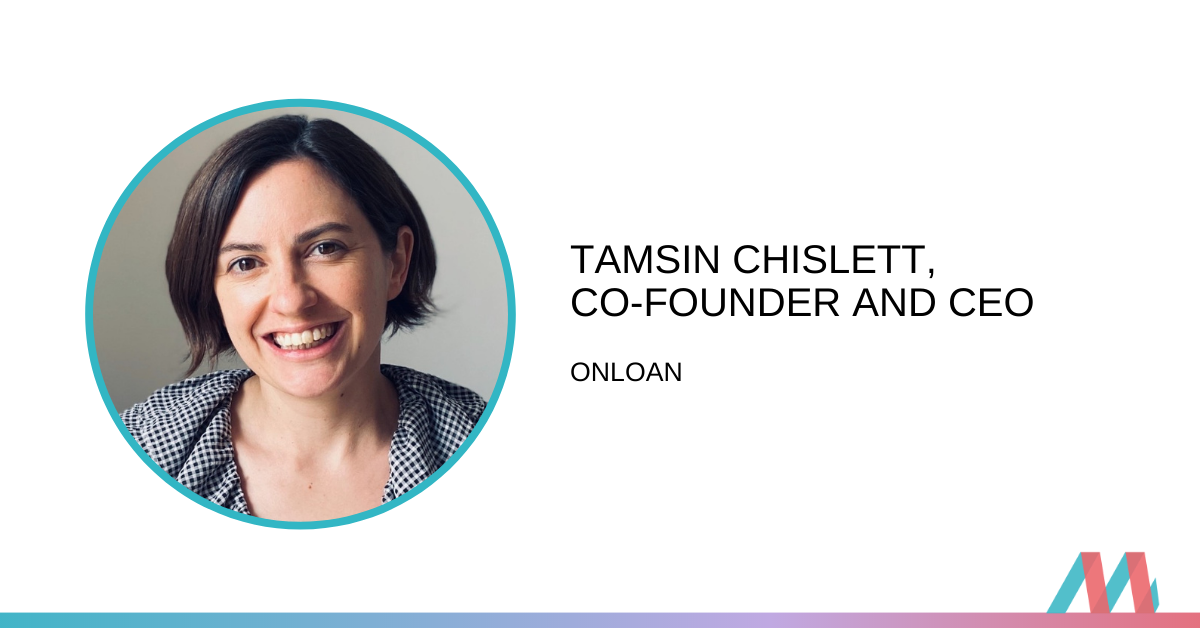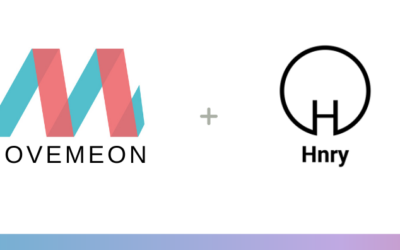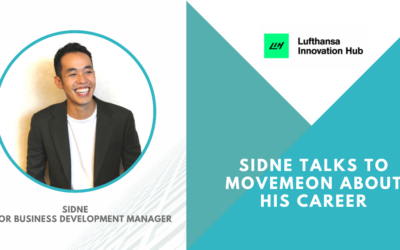In this article, Tamsin guides us through her varied career journey into becoming a founder.

Tamsin Chislett
Co-Founder and CEO at Onloan
—
Could you start by talking us through your career journey?
I studied Philosophy, Politics & Economics at Oxford – which I did probably because I couldn’t just pick one subject… I loved it, and it led me to think I wanted a career in international development. My dream job was working at the UN and saving the world in some way. After university, I worked in Tanzania and Vietnam for a bit. I say worked; really I was volunteering, and I think the main takeaway from the whole period was how useless I was. I had an Oxford degree, but no skills. Some very smart person I met during that period told me to go to a management consultancy and as they train you up in commercial and business skills, and pay you quite well at the same time. Having spent all my money on living in these spaces and feeling very useless, this felt like a pretty smart move.
I applied to all the top firms and got into Bain, and spent two years there. After two years, on the very first day I was allowed, I took a six-month sabbatical and went back to emerging markets. I worked in Zimbabwe with TechnoServe with a lot of ex-consultants and that was an amazing experience because I actually felt really helpful, and could immediately see how all the consulting skills I’d developed were paying off. I worked for a coffee mill out there, which has since gone bankrupt, but I think that might be testament to conditions in the economy more than my consulting skills! After coming back from that sabbatical I worked in Bain’s private equity group.
By that point I knew that consulting wasn’t my chosen career for the long term and as much as I’d loved all the learning I’d done at Bain, I had two things I was finding difficult. First, I did not feel like I had a very direct impact as a consultant. I wanted to be the person who was doing the stuff. Secondly, I felt like we were being taught a particular way of approaching a problem, a way that is really helpful and that I still use all the time, but it was a very one-dimensional way of looking at an issue. I wanted to blow that thinking up completely. I went back to emerging markets again and ended up working in Uganda for a year. I went there with a big impact investment fund called Acumen, who at the time ran a global fellows program that used to take 10 fellows from around the world that they would place with one of their investee companies.
You didn’t get to choose where you went, and I ended up at a cotton factory in the North of Uganda, which was a world apart from Onloan, but also the coolest work experience I’ve had. It was the first big private sector business in the area, after 20 years of civil war – it was the first business that had multi-million turnover, employing hundreds of people, providing a market for tens of thousands of small farmers – really proof of how impactful and amazing business can be for an area. I did a bit of everything, from helping them raise capital to helping the factory go faster, to figuring out how to stop there being such a fire risk in the height of the hot season when you had bales and bales of cotton around. It was really varied and wonderful, and I learned a ton.
I stayed in Uganda for another year because my partner had come to visit me, and he was quite keen not to go home! He’s an ex-consultant too, and he also escaped Bain to come to Uganda. I worked for a business that was called Living Goods, and they’re the Avon lady business model, but women doing door to door sales of critical health products as opposed to makeup. I helped them actually build out their consulting arm – again, using Bain skills to do that. After the extra year, I came back to the UK and worked for a tech startup because it felt like everybody was. The startup, called Hire Space, is a marketplace for event spaces. I loved the team; I’m good friends with the founder still. But after being in Uganda and having this massive positive impact I felt that helping corporates throw great parties didn’t quite do it for me. I ended up joining ClearlySo after just under a year.
ClearlySo is a boutique investment bank which helps young companies raise capital. It is specifically focused on companies that have a positive social or environmental impact. Through that, I spent three years working with entrepreneurs, and eventually I decided I would jump ship and become one. After three years, I just realized I had the mentality, the propensity to take risks, and wanted to be absolutely at the coalface making stuff up. So, I left with the intention of starting a business and took time out and traveled with my then one baby, and then came back and started Onloan.
What was it that made you realise that you had the risk appetite – or to put it a different way, what helped you make that leap into starting your own thing?
If you have a squiggly career, which I think is the official term for what mine looks like, you look back and you start to draw a narrative and try to recognize what are the consistent points between each move. I realized I actually had already taken quite a lot of risks. My time at Bain wouldn’t be considered a risk by anybody because it’s this really solid, well-trodden career path. But I actually didn’t know anyone who worked in a business, my parents were both in education. For me to go and work at the height of the commercial world as a management consultant was a bit of a left-field move – that was the first risk.
Moving to Uganda, especially in Northern Uganda, in a place famous because of Joseph Kony and his troops, was quite a big risk. But those things just washed over – it was the sense of adventure I wanted, and to have a really good time and while being helpful. As I looked back, I realised I’d taken quite a lot of risks already… That’s what makes life exciting and tends to lead to the most fruitful opportunities. I wanted to do it again. I caveat all of that by saying that I know I’m incredibly privileged. I have an ability to make money that I can fall back on. I have a partner who pays for the mortgage. I have support from parents and childcare – all things that actually make the risk of starting a business quite minimal compared to a lot of people. I don’t want to claim that Onloan was a huge risk. It’s riskier than a lot of other things I could have done, but the way the world is set up, it’s not as big a risk for me as it would be for lots of people, which is so unfair.
How have you found running your own business as a mother? Has it had an impact on the kind of business you are creating and your internal processes?
It’s pretty tiring!
No, actually it’s been really good. I don’t know if I would have started Onloan at all if I hadn’t had a kid. It spurred me on to do it when I did for two reasons. First, and this is a bit more sensible than the other reason, as a mother you do have that feeling of wanting to have an impact, and to build a better world. All of that was part of it. Secondly, being a mother also just made me feel old! It made me hurry up and get on with it because I thought if I didn’t do it then, I was going to be the mother of a teenager and still not doing the work that I wanted to do.
But I couldn’t have done it full stop if I didn’t have a partner who did half the work – actually more than half the work – at home. I had my second kid when Onloan was 10 months old and I chose to go back to work after two weeks, and my partner took all the leave. He did everything; he was the newborn parent doing night feeds. That’s the only reason I’m having a third, because that was a really great experience.
One of the things about being a founder is that you are under immense pressure. The pressure is like nothing I’ve known before. We have a tiny team, but even in this environment, there’s just a huge sense of responsibility, which I hadn’t quite factored in. I think it can send you crazy. The wonderful thing about having kids is you have this built-in release and you have this built-in time every single day without fail. You do not get to opt-out of it. So, I’m very lucky. I live 15 minutes’ walk from work. I’ve been in the warehouse during COVID because we pack orders and need to be here. I leave the office at 5 and 5-7.30 is kid time. There’s no deciding one day that I’ve got too much work to do because no one else is going to pick them up. I actually think it’s wonderful because it’s this forcing factor to go and talk about utter nonsense with my four-year-old. I really credit it with helping me stay sane when you’re under a lot of pressure.
What was the inspiration for you to start Onloan specifically?
I’ve been interested in sustainable fashion for a long time. I think it maybe even slightly predates going to Uganda, but certainly when I was in Uganda, I got to see the fashion supply chain right at the other end. We were literally helping farmers grow cotton and then purchasing it, and we had organic certificates for the cotton. When I was there, we also got the first Fairtrade certificate for cotton for East Africa. I learnt loads about how positive the supply chain can be. As I left Uganda, the Rana Plaza disaster happened in Bangladesh, where lots of people died at the factory. It definitely was a moment of reckoning, realising what a mess a lot of the industry was. I stopped buying on the high street because I just felt like it was one of those industries where we were no longer ignorant of how awful it was – if we were pretending to be ignorant, it was wilful ignorance.
I started buying from lots of small sustainable brands instead, and I didn’t buy as many clothes as before. I used to still get my mum to occasionally buy me a present from Topshop, which was my way around the whole situation, but in general, I bought a lot less. At the same time, I had in the back of my mind that clothing/fashion was an industry that I was passionate enough about, so that if I was going to start a business, I would be able to stick with it in good times and tough times – having run a business through a pandemic, it feels like I made the right choice…
Once I knew I was going to leave ClearlySo and start a company, I started looking around for models and came across rental and just got really excited about rental. On the one hand, I think it tackles the biggest problem in fashion, which is over-consumption. We have to learn to enjoy clothes, but with having few of them around. We have to stop treating them as a disposable product. On the other hand, the rental model also celebrates fashion. The great thing about it is that because customers aren’t committing to garments long-term, they can afford to be much more experimental, much more adventurous. They can try out new styles and brands, which actually gives the fashion industry this new lease of life. Designers are no longer having to create an item that they hope they can sell en masse, or that more sustainably-minded customer will think they’re going to wear 30 times. They can design what they want to design, which is often beautiful and wonderful. I love this model for that reason. It tackles the biggest problem, but also celebrates the industry for its best qualities.
Then I looked around and realized that in the UK, lots of people have tried it, but in my opinion, hadn’t tried quite the right business model or hadn’t quite had the right execution skills. So, it was a good time to try again.
Do you have any tips for other people thinking about launching their own business?
If you’d asked me a year ago, my answer would have been to just do it. It’s great.
With (part of) the pandemic behind us, my new tip is to think really hard, to make sure you really want to do it. Once you’ve done that, talk to people who are founders so you can really understand what a big job it is, and how much responsibility it brings – how high the highs and how low the lows will be, really.
In terms of making your startup a success, I would say finding an amazing co-founder has been absolutely critical to me. She’s actually married to an ex-Bainie. I still found her through Bain, even though she’s very much the opposite of a management consultant. Finding somebody who you can share those highs and lows with is really important. There’s an element of luck because you never know quite how you’re going to work with somebody. But I think it has been key for our survival
When it comes to candidates looking to work for an organization like yours, so a small startup or in the fashion space, what would your advice be?
It’s probably different for graduates that we’ve been hiring versus people who are shifting career. With graduates, we’re definitely always drawn towards candidates that have had a side hustle. Almost everybody we interview is doing something really productive alongside their degrees. I don’t know how they’re fitting it in, especially during COVID, but it’s really admirable and it just means that the candidates we talk to have so many more skills than I think I left university with.
I think that’s a really hard request to have of a consultant because they’re doing hundred-hour weeks already, so there’s no time for a side hustle. I think it’s helpful to have any evidence that you are the kind of person who is a doer and not just a thinker, that you really want to roll your sleeves up and get stuck in – whether you’ve done that pre-consulting or whether you’ve done that through, like a volunteer role within the consulting firm… It’s good to just have something to show that your experience goes up to actually implementing things.
Find your next career opportunity on Movemeon.com
Movemeon supports organisations to hire all over the world. Contact [email protected] if you are looking to hire.




